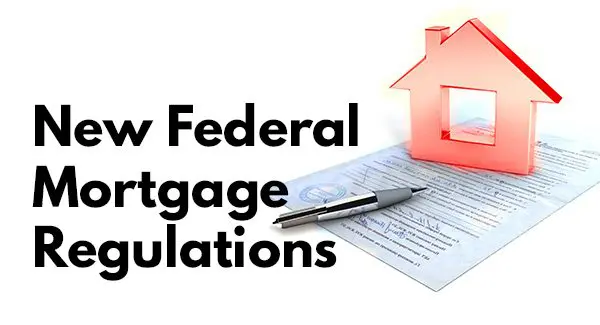- Community Associations, Legal Updates
- Wisconsin, Indiana, Illinois, Florida
As a result of the Surfside, Florida Condo collapse in 2021, Fannie Mae (a federal agency that insures private mortgages) and other federal mortgage insurance agencies, may require associations to provide significant, additional information regarding your Association’s long-term financial condition, structural integrity, deferred maintenance information, and building code issues when processing loans for prospective purchasers.
These new requirements are effective January 1st, 2022.
Fannie Mae insured loans are very different than FHA Loans
Many Board members and owners mistakenly believe that FHA mortgages are the same as Fannie Mae insured mortgages. This is not true. Historically, many Boards were apprehensive about obtaining FHA certification for their community as they believed FHA mortgages allowed less-financially qualified owners/borrowers.
Again, Fannie Mae insured loans are very different. In fact, more than 62% of all outstanding loans are insured by Fannie Mae and most conventional lenders follow the Fannie Mae requirements. Fannie Mae insured loans require a much higher credit rating than FHA and the average down payment is often 2 to 3 times higher than FHA loans.
Therefore, many well-qualified purchasers may be precluded from FNMA Insured financing in your Association unless the Board takes proactive steps to comply with some of the new Fannie Mae requirements.
Fortunately, KSN’s experience, resources, and expertise will assist your Board and Management in navigating this new regulatory hurdle.
How can KSN help?
KSN has created a Fannie Mae supplemental disclosure packet (FSDP), that when completed will contain the accurate responses to the new portion of the Fannie Mae Form 1076 (Pages 6-8 exclusively) based upon your Association’s information. This will relieve the board and management from some of the burden of completing the new Fannie Mae requests regarding Building Safety, Soundness, Structural Integrity and Habitability (although we will still need the cooperation of management and the Board to provide us with the background information, so we can prepare the appropriate responses). The traditional portions of Fannie Mae Form 1076 (Pages 1-5) will still need to be completed by the Board or management as before and management can still charge a fee for these services.
How does it work?
If the Board or management receives a Fannie Mae lender questionnaire requiring the new Building Safety and Structural Integrity responses (Form 1076, Pages 6-8) and the Board would like KSN to assist:
- Contact your attorney at KSN
- Send a copy of the lender questionnaire
- We will forward the FSDP Agreement to your Board (we do not charge a fee for each request received).
- Once approved and the Agreement is signed by the Board, our law firm will work on obtaining the necessary documents from management and the Board to draft and provide appropriate responses for the new FNMA Form 1076 (Pages 6-8 exclusively) for your Association.
KSN’s FSDP (similar to a 22.1 Disclosure) is intended to be good for future requests within near future (approximately 12 months) or until the Association is confronted with new structural issues, deferred maintenance problems, building safety issues, code violations, litigation, new reserve study or changes in your reserve funding and planning, whichever is sooner (we will not charge a fee for each request received). If these events occur, then an Amendment to the FSDP will likely be required. Our Agreement will contain the fees for the initial FSDP and amendments or updates if needed. If these as stated above, management can still respond and charge a fee for the traditional questions contained on pages 1-5.
What’s your next step?
If your Board is interested in being proactive in preparing for these specific FNMA lender questionnaires (Form 1076, Pages 6-8), then the Board or management may contact the KSN to receive an Authorization Agreement with an outline of our fees.
If the Board has any questions or needs further details, contact your KSN Attorney or send an email to fnmadisclosure@ksnlaw.com
Since 1983, KSN has been a legal resource for condominium, homeowner, and townhome associations. Additionally, we represent clients in real estate transactions, collections, landlord/tenant issues, and property tax appeals. We represent thousands of clients and community associations throughout the US with offices in several states including Florida, Illinois, Indiana, and Wisconsin.
Please note the material contained in this article is for educational and informational purposes only and does not constitute legal advice. No attorney-client relationship is established by your review or receipt of the information contained in this article. You should not act on the information discussed in this article without first obtaining legal advice from an attorney duly licensed to practice law in your State. While KSN has made every effort to include up-to-date information in this article, the law can change quickly. Accordingly, please understand that information discussed in this article may not yet reflect the most recent legal developments. Material is not guaranteed to be correct, complete, or up to date. KSN reserves the right to revise or update the information and statements of law discussed in the article law at any time, without notice, and disclaims any liability for your use of information or statements of law discussed on the article, or the accessibility of the article generally. This article may be considered advertising in some jurisdictions under applicable law/s and/or ethical rules/regulations. © 2022 Kovitz Shifrin Nesbit, A Professional Corporation.


